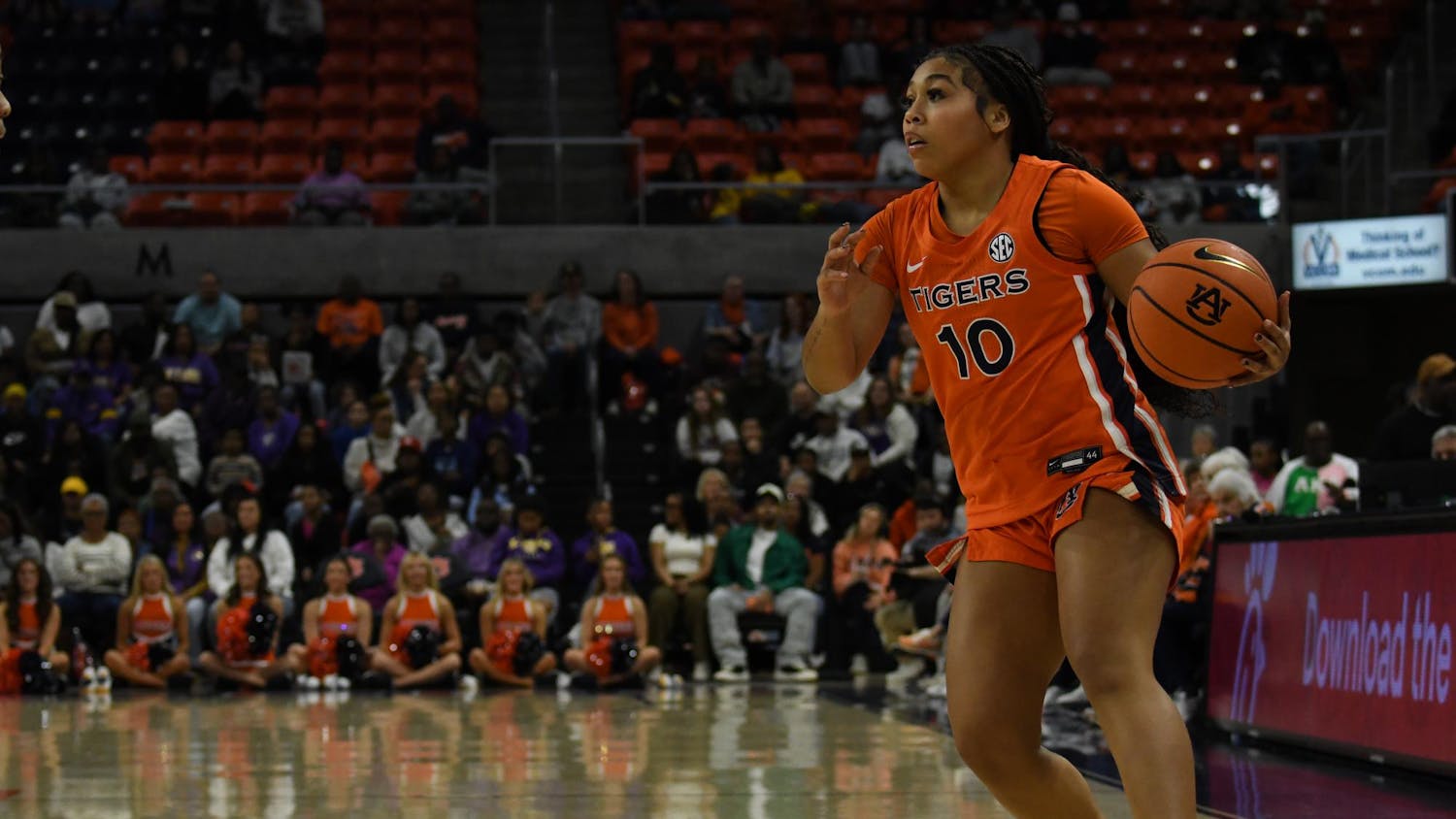Auburn student athletes must balance sports, schoolwork and social lives. Auburn's numerous foreign athletes must juggle all of these things, plus deal with the added pressure of being so far from home.
Though their teammates can be inviting and friendly, foreign student athletes sometimes struggle through many changes when they first come to America. Missing home, new foods and customs, a language barrier or even a loss of cultural identity are just some of the issues these athletes face.
"I've been here four years now, and I've gotten used to being on my own. So whenever I am at home, I feel I'm not Dutch anymore, but when I'm here, I'm not American either," said Myrthe Molenveld, a senior from the Netherlands who just finished her last season on the women's tennis team.
Many foreign athletes see their family and friends from home less often than their teammates.
Holly Knight, a junior on the women's cross country and track and field teams, said she sees her parents about two times each year.
"I e-mail them through the week, and we talk through Skype," Knight said. "It's pretty much the same as if I'd gone to university in England, anyway."
Keeping in touch with family or friends overseas has become much easier in recent years because of Skype's popularity. Skype is a software application that allows users to video-chat another user through the Internet for free.
On top of everything else, some foreign athletes have to learn English to communicate with coaches or teammates. To even enroll in American colleges, students have to take the SAT or ACT tests, which are entirely in English.
"I took English for five years, but it's nothing compared to being here for a month," Molenveld said.
"Just moving from state to state is a big culture shock for me, but with a language barrier, it would be super tough," said Sean Frost, a senior in psychology.
American universities place a high value on athletics, and most colleges offer scholarships to their varsity athletes. The competitive nature of NCAA athletics drives teams to recruit the best athletes, no matter what country they are from.
"I'm very grateful to be over here because there really aren't many opportunities in England to play a sport and be in university at the same time," Knight said.
NCAA teams are becoming increasingly multinational, according to USA Today research from 2008.
Auburn University's foreign athletes come from 18 countries in the Caribbean, Central and South America, Africa and Europe.
Foreign athletes are a valuable part of Auburn athletics. They are on the cross country, track and field, tennis, swimming and diving, golf and volleyball teams.
Some will return home after they receive their education, while others will stay in the U.S.
"I miss home, but at the same time my life is in America right now, and maybe one day I'll want to move back," Molenveld said.
Do you like this story? The Plainsman doesn't accept money from tuition or student fees, and we don't charge a subscription fee. But you can donate to support The Plainsman.




